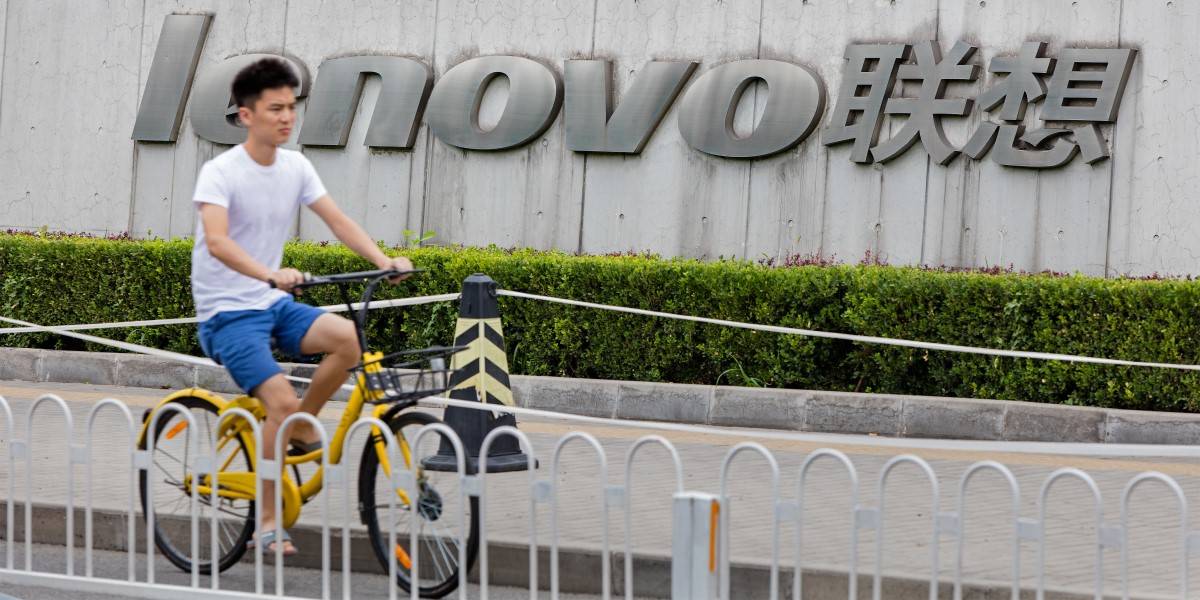Lenovo Ordered To Pay $140M For InterDigital Patents – Sees This As A 'major Win'

Lenovo must pay US patent holder InterDigital $138.7 million to settle a years-long licensing dispute for the use of technologies deemed essential to 3G, 4G, and 5G communications.
The decision, handed down by London High Court Judge James Mellor on Thursday, mandating the Chinese OEM pay InterDigital a lump sum for all past and future device sales through the end of the year, was seen by Lenovo execs as a victory.
"Lenovo thanks the court for its judgment in InterDigital v. Lenovo. We see this as a major win for the technology industry and the customers we serve," John Mulgrew, VP and deputy general counsel at Lenovo, declared in a statement.
That seems like an odd reaction from someone that's been ordered to shell out a large chunk of cash, but InterDigital had hoped to extract an even larger sum – to the tune of $337 million – from Lenovo for a six-year license. However, as Mellor concluded, previous attempts by both parties to settle hadn't been subject to fair, reasonable, and non-discriminatory (FRAND) rules.
Because the patents in question are essential to cellular communication as we know it, they're subject to FRAND, which require IP holders to license the technology at a fair rate. And that's precisely what Lenovo alleged that InterDigital failed to do.
"Based on the outcome from my comparables analysis, I find that neither InterDigital's 5G extended offer nor Lenovo's lump sum offer were FRAND or within the FRAND range," Mellor wrote in his judgment.
- Creator of Linux virtual assistant blames 'patent troll' for project's death
- Meta sees off another logo complaint from blockchain player Dfinity
- Intel settles to escape $4b patent suit with VLSI
- Brit says sorry after waving around nonce patent and leaning on sites to cough up
The decision marks the end of the sixth trial between InterDigital and Lenovo. According to court documents, the first five of these trials were technical in nature, while the most recent focused entirely on fair licensing terms.
This trial may have ended, but, the legal spat may not be over so soon. InterDigital's chief legal officer, Josh Schmidt, welcomed the court's decision, calling it the "first major SEP FRAND judgment that recognizes that a licensee should pay in full." But welcoming the decision and agreeing with all of Judge Mellor's conclusions are two entirely different things, it seems.
"We plan to appeal, as we believe that certain aspects of the decision do not accurately reflect our licensing program," Schmidt announced in a statement.
If all of this sounds strangely familiar, it's because InterDigital has been at the heart of well more than its share of patent lawsuits – many of which we've covered over the years. They include numerous notable cases involving Nokia and its then owner Microsoft, Huawei, Samsung, and others. ®
From Chip War To Cloud War: The Next Frontier In Global Tech Competition
The global chip war, characterized by intense competition among nations and corporations for supremacy in semiconductor ... Read more
The High Stakes Of Tech Regulation: Security Risks And Market Dynamics
The influence of tech giants in the global economy continues to grow, raising crucial questions about how to balance sec... Read more
The Tyranny Of Instagram Interiors: Why It's Time To Break Free From Algorithm-Driven Aesthetics
Instagram has become a dominant force in shaping interior design trends, offering a seemingly endless stream of inspirat... Read more
The Data Crunch In AI: Strategies For Sustainability
Exploring solutions to the imminent exhaustion of internet data for AI training.As the artificial intelligence (AI) indu... Read more
Google Abandons Four-Year Effort To Remove Cookies From Chrome Browser
After four years of dedicated effort, Google has decided to abandon its plan to remove third-party cookies from its Chro... Read more
LinkedIn Embraces AI And Gamification To Drive User Engagement And Revenue
In an effort to tackle slowing revenue growth and enhance user engagement, LinkedIn is turning to artificial intelligenc... Read more

